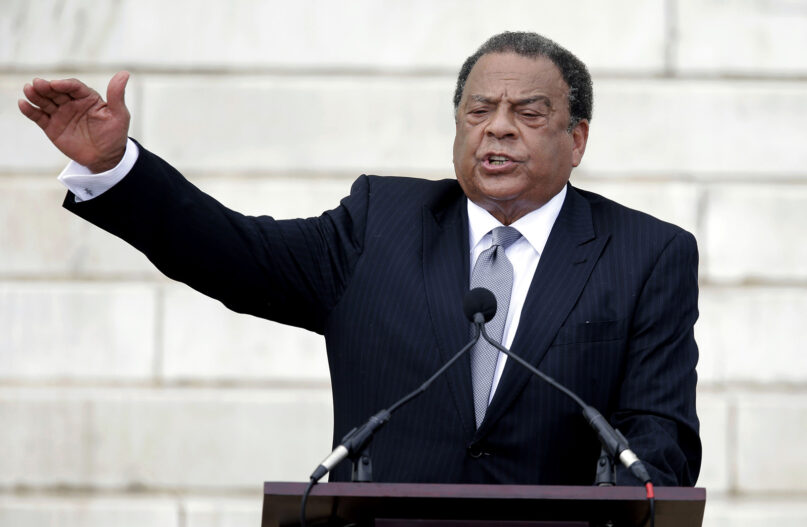(RNS) — When my friend Tony Lowden gave me Andrew Young’s phone number one day last summer and suggested I call him, I expected to hear a few words of wisdom from one of our country’s great civil rights leaders, a lieutenant of the Rev. Martin Luther King Jr.’s who was with King the day of his death. I’d long admired Young, who went on to serve as a congressman, President Jimmy Carter’s ambassador to the U.N. and mayor of Atlanta.
As only our God can arrange the events of our lives, by the end of the day I would find myself in the middle of a race riot in Atlanta, covering an event the likes of which the city had not seen in decades. Young’s voice still rang in my ears.
What Young told me that morning was that, despite the tension in race relations in America right now, “We’ve gotten through it before, and we will get through it again.”
RELATED: Martin Luther King Jr. faith events continue in time of COVID-19 and Capitol chaos
This may not seem the most hopeful message for a Martin Luther King Day weekend. Where is the “We Shall Overcome” in just getting through? Young, however, who grew up in New Orleans in the 1930s and ’40s and experienced the racial upheaval of the ’60s at King’s side, has been through some of America’s dark valleys. He has seen how the country has changed in regard to racial inequality.
But “getting through” points to what we celebrate on MLK Day: not the overcoming, but the struggle. Our country continues to struggle when it comes to race, but King showed us that it’s what we do with the struggle, how we struggle, that defines and shapes us as Christ’s followers.
An ordained minister, as I am, Young told me in our phone conversation that I should remember my calling when dealing with race issues, which means leading. “Martin would say that if you’re not willing to stand up and lead, go do something else,” Young said.
Leadership in the fight against injustice is not a simple matter of lashing out. It’s a responsibility to serve others, just as service was at the heartbeat of King’s mission. “Don’t get mad,” Young said. “Find a way to help others and solve the problem.” We need that spirit in our culture today.
Service means living for something greater than ourselves. In the Christian framework, it means recognizing that our lives are not our own. And for King, this meant carrying on the fight no matter the cost, and even bearing the cost lightly. “Martin would joke about death,” Young recalled, “and he made us laugh about death.”
This mindset of sacrifice continues not only in the work of King, but in the work of the savior he followed. It proceeds on the premise that with God all things are possible. That includes solving America’s racial inequality.
Hours later, standing on a street in Atlanta, one of the South’s premier cities when it comes to racial equality, with its succession of Black mayors from Maynard Jackson to Young to Keisha Lance Bottoms — and yet watching racial upheaval in real time, I felt called as never before.
The last key that Young gave me before we hung up was this: Never let someone that I disagree with become my enemy, but to try my best to find common ground where I can.
That is our struggle. I believed him because these weren’t just words to be repeated. It was something that he has done, and something he watched Martin Luther King Jr. do over and over again.
(Maina Mwaura is a writer and speaker. The views expressed in this commentary do not necessarily reflect those of Religion News Service.)





